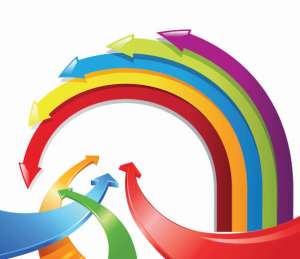A few people are prepping themselves for the next economic crisis and speculating about what will cause it. This blogger thinks there are several possible causes. It is about 99.99 per cent certain there will be another crisis.
Even if somebody does make an accurate prediction it will probably do no good because there are so many vested interests there will be no consensus about the cause and about what to do to prevent it. However, for some of us there is some fun in trying to think out economic problems and we might be able to improve our understanding of economics. So, here goes.
 The possibilities are for the cause to be within the financial system or for the cause to be within the physical or real side of the economy. As the two are interconnected it may be difficult to determine just what is happening.
The possibilities are for the cause to be within the financial system or for the cause to be within the physical or real side of the economy. As the two are interconnected it may be difficult to determine just what is happening.
Problems within the financial system relate to money. Either there is too much money or not enough. Ideally the available money supply needs to be just right for the quantity of goods and services exchanged and as this varies it needs to be flexible. When there is too much money available there is potential for inflation and this is a problem for people with invested savings as they lose some of their purchasing power. Deflation is a problem for lenders as the money they have loaned out will have less purchasing power when it is returned, if it is returned.
The really serious problem comes when there is not enough money as this curtails economic activity. Most of the money supply is based on loans made by the financial industry and involves a multiplier. When the industry has to write off a large quantity of loans, as with the recent subprime housing crisis, the money supply goes down, again with a multiplier effect. Without money the exchange of goods and services becomes difficult and lots of people lose their jobs. Big time suffering.
Currently it appears there is lots of money floating around the economy. Lots of firms are reported to have piles of cash on hand and are probably unable to see investment opportunities.
On the real side of the economy, many people assume there are lots of energy and mineral resources available and therefore no physical restraints on the exchange of goods and services. This may not be true.
A common argument is that as resources are consumed higher prices will bring on a greater supply which happened with oil and lots of minerals. The problem is that they also require more energy to extract which reduces the energy available for other activities and at some point the value of the energy exceeds the value of the resources. This blogger figures there are lots of energy and mineral resources available on the earth’s crust, but the cost of getting them makes them useless. This could be changed by technology and the decreasing cost of solar energy will make the high cost of oil irrelevant.
However there may be some economic disruptions in the transition. How much oil infrastructure will have to be written of and what would that do to the money supply? Also there are all the other minerals for which there are no clear cheap substitutes.
This guy fears the greatest threat to our economic well-being is from resource restrictions on the physical side of the economy. An even greater threat is that too many people will not see the problem because they analyse problems only in financial terms and will be looking for solutions on the financial side. Changes in how much money is available or even in the way in which we create money will not add to the resource base or make it cheaper to extract them.
I fear for the future of my grandchildren.
Filed under: Economics | Tagged: crisis, deflation, Economics, financial crisis, grandchildren, inflation, money supply, not enough money, resources | Leave a comment »





